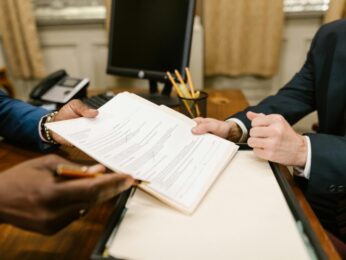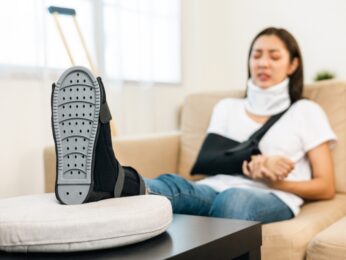Roman & Boock Resources

5 New Year’s Resolutions from a St. Louis Personal Injury Lawyer
Each new year sparks a renewed interest in health, fitness and finances. Personal safety rarely makes the list of resolutions… Learn More +

Holiday Travel Safety Tips: The Top Causes of Holiday Car Accidents & How to Avoid Them
The holiday season is filled with joy, but the roads often spin a different story. In the coming weeks, millions… Learn More +

A Premises Liability Attorney Explains the Importance of Visitor Status
In slip and fall cases, not all visitors are treated equally under the law. Your rights — and the property… Learn More +

The Relationship Between Wrongful Death and Probate Lawyers by State
Families who have lost a loved one due to negligence face two legal challenges: pursuing justice and managing an estate.… Learn More +

How Staffing Shortages Contribute to Care Home Neglect
When nursing homes run short on staff, residents suffer the consequences. Medications are missed, call buttons go unanswered and hygiene… Learn More +

Justice After the Burn: How a St. Louis Burn Injury Lawyer Can Help You Recover
Suffering a burn injury is one of the most physically and emotionally devastating experiences a person can face. When that… Learn More +

Pedestrian Accident Claims: Common Causes and Courtroom Considerations
When thinking of a car crash, people envision multiple cars colliding — but not every crash involves two drivers. Pedestrians… Learn More +

Slips, Trips and TBI Lawsuits
A slip, trip or fall seems small — but they can have serious consequences. Falls may result in a traumatic… Learn More +

A Spinal Cord Injury Lawyer Answers Your Car Crash Questions
September is Spinal Cord Injury Awareness Month, a time to bring light to the causes and challenges of spinal cord… Learn More +

What to Do After HIE: A Hypoxic Ischemic Encephalopathy Attorney’s Advice
Receiving a hypoxic-ischemic encephalopathy (HIE) diagnosis for your child can be emotional. Beyond current medical concerns, you may be unsure… Learn More +

Factors that Influence Your Chances of Winning a Personal Injury Lawsuit
Some personal injury victims hesitate when faced with the legal system. They may ponder their chances of winning a personal… Learn More +

What to Do After Car Defects Cause a Crash
When a car crash occurs, people often point the finger at the person behind the wheel. However, driver error is… Learn More +